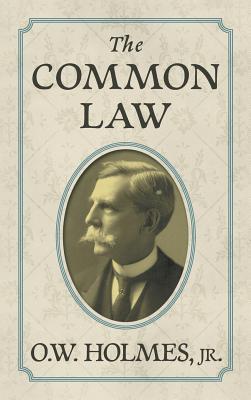The landmark work that influenced the development of modern American law. Originally published: Boston: Little, Brown & Co., 1881. xvi, 422 pp. This landmark work, which, according to Winfield, "blew fresh air into lawyer's minds encrusted with Blackstone and Kent," was a decisive influence on sociological jurisprudence, legal realism and the general development of American law in the twentieth century. (Percy H. Winfield, Chief Sources of Anglo-American Law 38.)
Rejecting the reigning positivist ethos of the nineteenth century, Holmes proposed that the law was not a science founded on abstract universal principles but a body of practices that responded to particular situations. This functionalist interpretation led to his radical conclusion that law was not discovered, but invented. This theme is announced in the famous quote at the beginning of Lecture I: "The life of the law has not been logic: it has been experience."
